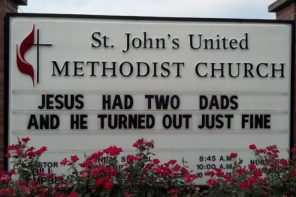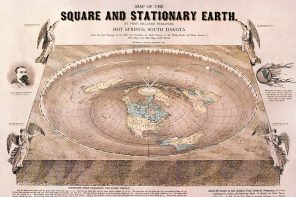First… a word of thanks to Paul Wallace, for his thoughtful response to my interview with Catherine Keller. I was grateful, also, that he included a bit on apophatic theology… In fact, the transcript of my original interview with Catherine was loaded with musings on apophatic theology (its very history in western theological thought, on Nicholas of Cusa as an apophatic theologian, on quantum physics as a kind of “unsaying” of the laws of classical physics, on apophatic theology and deconstruction) but to include these reflections would have made the interview much longer.
So I made some (perhaps lamentable) editing choices. It’s a difficult game—serving up these rich, dense academic discourses in digestible bites.
I was glad to see Wallace fill in some of these gaps. Those who are still hungry will have to check out Catherine’s forthcoming book…
But after reading some of the comments on his post—and, admittedly, sitting in front of my own computer, imagining the myriad responses that various readers might be having to this strange new entanglement of science and theology—I wanted to make another fleeting attempt to contextualize some of this conversation.
It’s important to do this, I think, because the relationship between science and theology is shifting, as these fields (themselves) change. This is both unsettling (haven’t we seen some ugly things happen when theology tries to get too intimate with scientific data?) and exciting (it can’t be wrong… to make spiritual sense of this thrillingly complex cosmos that our scientific data reveals to us, can it?) I don’t think it’s possible to keep science and spirituality from getting all tangled up. But tangles can either make a helpful knot (perhaps a nest!), or a frustrating mess. Best to have a good comb on hand, perhaps.
While Catherine is reflecting, theologically, on some possible resonances between the ancient Christian mystical practice of apophatic theology and contemporary physics, Wallace is right to distinguish what she’s doing from “quantum mysticism” as such. She points to the way that quantum physics might “unsay” the laws of classical physics, as apophatic theology “unsays” any concrete language about God (the apophatic trope is to make the divine radically other by pointing to concrete images, like God as Father, indicating that this is still not really God, only a kind of powerful avatar).
Both apophatic theology and quantum physics destabilize our comforting, sedimented, cosmological certainties. Both draw our attention to the fact that our human relationships to (and in) this strange cosmos are much more complex, dynamic, multilayered, indeterminate than we might ever have imagined. But Catherine’s not mystifying scientific data—charging that we should somehow be overtaken by its occult, spiritually mysterious powers.
The odd science of quantum physics may drive theologians to retrieve forgotten elements from their own ancient treasure chest… or to invest resources in building new ones, with fabulous new spiritual capabilities. But quantum physics is not a secret mystical resource. What intellectually cautious work like Catherine’s shows us instead, I think, is that theology and science are entangled—like particles that once interacted, physically, and now can’t help but affect change in the other as they each grow, modify, evolve.



